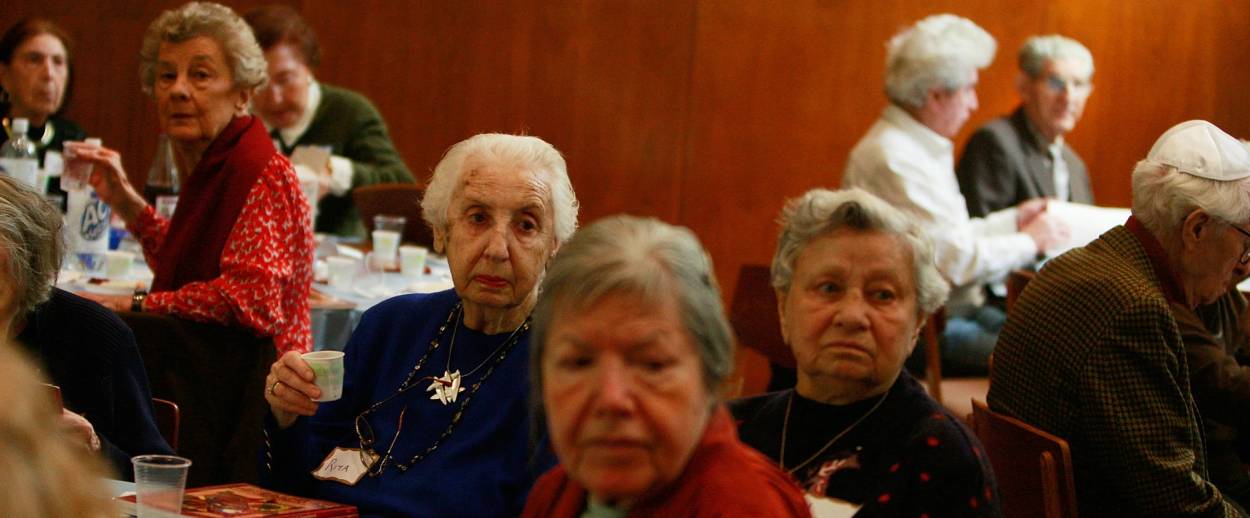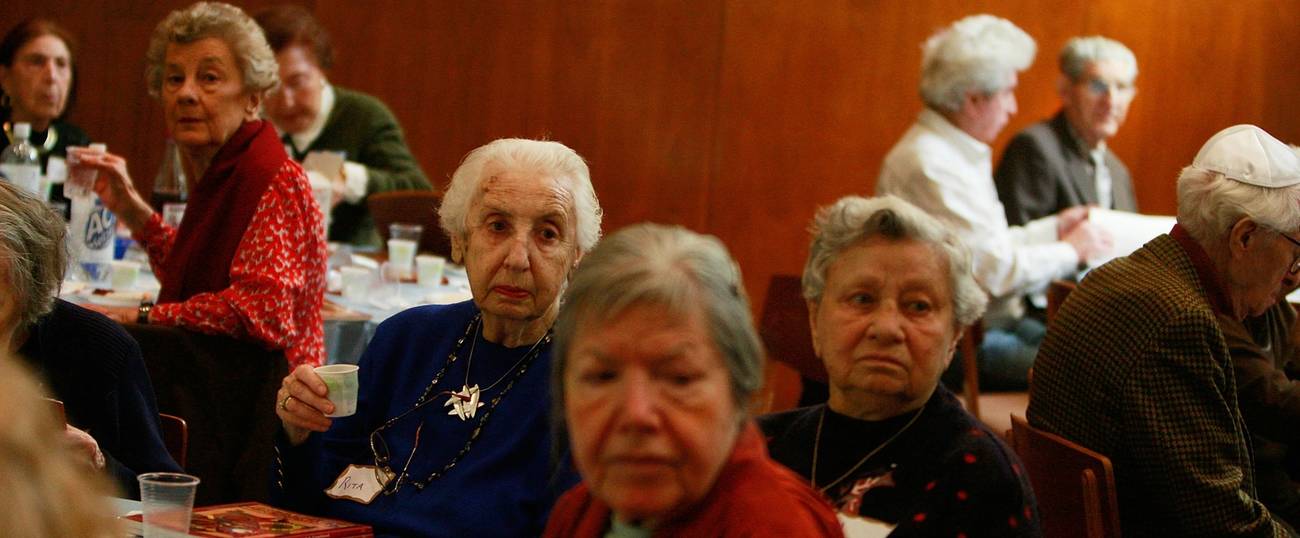A Conversation With Selfhelp, a Non-Profit Dedicated to Helping Holocaust Survivors
In honor of International Holocaust Remembrance Day: Remembering and serving the 43,000 survivors living in the New York area




In honor of International Holocaust Remembrance Day on January 27, Tablet’s podcast, Unorthodox, spoke with Sandy Myers and Desiree Nazarian of Selfhelp, a New York based non-profit dedicated to “maintaining the independence and dignity of seniors and at risk population through a range or housing, home health care, and social services.”
The organization was founded in 1936 under the name “Selfhelp for German Refugees” by a group of recently arrived German refugees in New York, with the mission of offering support to others who had been forced to flee. Providing services to survivors continues to be at the forefront of Selfhelp’s mission.
Who is eligible for services? And how is a survivor defined? Beyond those who survived concentration camps, the term survivor extends to anyone who disguised their Jewish identity, fled their home, went into hiding during the period of the war, or experienced persecution because of their Jewish heritage. Even those in utero until 1945 qualify as survivors.
Now located in 27 sites in Queens, Manhattan, Brooklyn, the Bronx and Nassau County, 25 percent of Selfhelp’s services go to to assisting the 43,000 survivors currently living in New York. A staggering 50 percent of these survivors are living at or below the federal poverty line. The Russian speaking population has faced severe difficulty, with 80 percent living at or below federal poverty line. The Russian population has faced challenges not only due to aging and lingering physical trauma, but lack of steady employment and negotiating language barriers.
Last year, 970 survivors approached Selfhelp, and in 2018 Selfhelp expects to surpass that number as word travels and survivors continue to come forward as they realize their eligibility.
In addition to more practical services, Selfhelp offers community programming like Coffee Houses where survivors can meet locally for refreshments and dancing. Another facet of the community programming is The Witness Theater Program, which pairs survivors with high school students to share their stories and memories, culminating in a performance during Yom Hashoah.
Selfhelp’s training for home aide workers is unique, with an emphasis placed on sensitivity for survivor’s past trauma. For example, home aide workers enter a home knowing loud noises or barking dog could be particularly disturbing for a survivor.
How to Help:
1. Identifying survivors. The definition of a survivor is broad, and does not just extend to individuals who were in concentration camps.
2. Consider your immediate network. Think about your parents, your grandparents and stories you might have heard about WWII. Is there anyone who could be eligible? Be aware that people might not want to talk about their past, so even knowing what countries people in your community were living might help assessing their eligibility for Selfhelp.
3. Get the word out. Find Selfhelp on Facebook, Instagram, and Twitter and encourage those you know to spread the word that resources exist in New York.
4. If you’re a second or third generation survivor and want to get involved, go on the website or connect on social media to speak with someone about how to help.
5. This is the last generation of survivors and time is of the essence. The needs of survivors are growing more intense and costly and there are ways to make sure people are connected and able to live in an environment where they can thrive.
If you know a survivor, visit their website or call 212-971-7795. And for those outside of New York, you can contact your local Jewish Family Services or a local federation chapter for assistance.
Kelsey Liebenson-Morse is a writer and teacher living in New York.